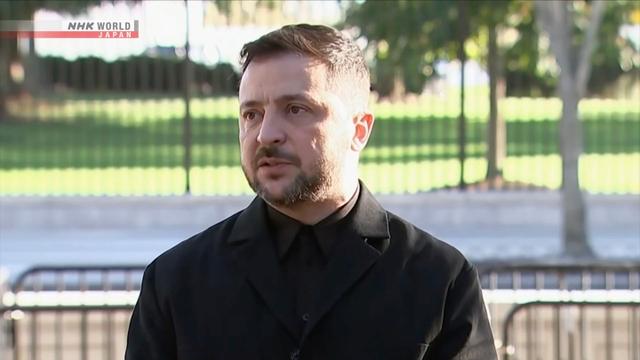As tensions persist over the conflict in Ukraine, the United States and European nations are exploring new strategies to intensify pressure on Russia. Moving beyond traditional sanctions and diplomatic measures, these efforts aim to weaken Moscow’s political and economic standing amid ongoing hostilities. This shift reflects a growing recognition among Western leaders that innovative approaches are essential to counter Russia’s actions and influence in the region.
U S and Europe Expand Economic Sanctions to Target Key Russian Industries
In a coordinated effort to deepen economic pressure on Moscow, the U.S. and European Union have unveiled a fresh slate of sanctions targeting pivotal sectors within Russia’s economy. These measures specifically focus on industries such as energy, finance, and technology – aiming to curtail Russia’s ability to fund its ongoing military operations and erode its strategic capabilities. Among the new restrictions are limits on key exports and investments, as well as tightened controls over transactions involving Russian entities linked to state-owned enterprises.
The sanctions package includes enhanced asset freezes and a prohibition on supplying advanced components to Russian industrial machinery manufacturers. Below is a summary of the newly targeted sectors and corresponding restrictions:
| Sector | Restrictions | Expected Impact |
|---|---|---|
| Energy | Ban on export of drilling tech | Reduced oil & gas production |
| Finance | Restrictions on cross-border loans | Limited foreign capital inflow |
| Technology | Block sales of semiconductors & chips | Hindered industrial modernization |
- Energy: Limits on technologies critical for extraction and pipeline expansion.
- Finance: Stricter scrutiny on Russian banks with overseas operations.
- Technology: Prohibitions targeting suppliers of microprocessors and electronics.
Exploring Strategic Energy Policies to Weaken Russia’s Financial Stability
In a concerted move to diminish Russia’s economic resilience, policymakers in the U.S. and Europe are intensifying efforts to reform energy strategies that historically fueled Moscow’s revenues. Emphasis is placed on reducing dependency on Russian oil and gas by accelerating the expansion of alternative energy sources such as liquefied natural gas (LNG) imports, renewable technologies, and diversified pipeline routes. These measures aim not only to curb Russia’s financial inflow but also to bolster long-term energy security across allied nations. Analysts note that such strategies could significantly disrupt the fiscal budget underpinning Russia’s governance and military expenditures.
Key policy actions currently under consideration include:
- Enhanced sanctions targeting Russia’s energy export infrastructure.
- Increased investments in renewable energy projects within Europe.
- Creation of strategic energy reserves to buffer supply shocks.
- Boosting LNG trade partnerships with non-Russian suppliers.
| Measure | Expected Impact | Timeline |
|---|---|---|
| Renewable Energy Investment | Reduce Russian energy share by 30% | 5 years |
| LNG Import Expansion | Offset 20% of Russian gas imports | 2 years |
| Energy Infrastructure Sanctions | Disrupt export logistics | Immediate |
Recommendations for Coordinated Diplomatic Efforts to Sustain Pressure on Moscow
To maintain the momentum of diplomatic pressure on Moscow, the United States and European allies must present a united front that extends beyond traditional sanctions. This includes leveraging multilateral institutions to amplify their stance and coordinating more targeted financial restrictions aimed at key sectors within Russia’s economy. Experts emphasize that diplomatic channels should remain fluid and adaptive, incorporating a blend of public condemnation alongside backdoor negotiations to avoid escalation while keeping the Kremlin strategically pressured.
Key strategies recommended by analysts include:
- Enhanced intelligence-sharing among Western allies to monitor sanction evasion.
- Synchronizing timelines for new measures to avoid giving Moscow opportunities for selective compliance.
- Engaging influential global partners from Asia and Africa to broaden the diplomatic coalition.
- Increasing support for independent media and civil society groups inside Russia to foster internal resistance.
| Tactic | Objective | Expected Impact | ||
|---|---|---|---|---|
| Joint Sanction Announcements | Unified messaging | Reduced loopholes for evasion | ||
| Multilateral Diplomatic Outreach | Broaden alliances | Global pressure on Moscow | ||
| Support for Independent Media |
| Tactic |
Objective |
Expected Impact |
|
| Joint Sanction Announcements | Unified messaging | Reduced loopholes for evasion | ||
| Multilateral Diplomatic Outreach | Broaden alliances | Global pressure on Moscow | ||
| Support for Independent Media | Foster internal resistance | Undermine Kremlin control over information |
Would you like me to assist with further editing, adding more content, or formatting suggestions?
The Way Forward
As the geopolitical landscape continues to evolve, the United States and Europe’s search for effective strategies to pressure Russia underscores the complexities of modern diplomacy and conflict management. While traditional sanctions and diplomatic efforts remain in play, emerging tactics reflect a willingness to adapt to new challenges. The coming months will be critical in determining whether these innovative approaches can shift the balance and influence Russia’s actions on the international stage.




